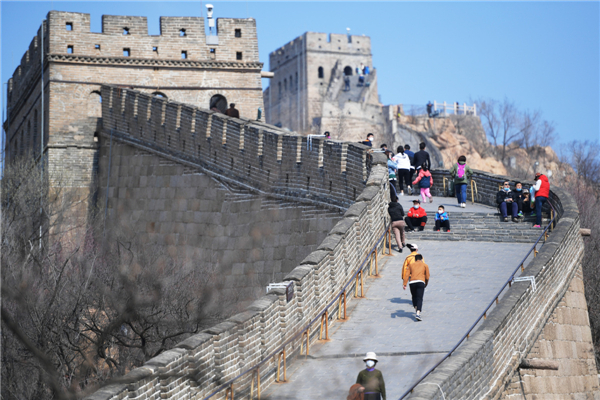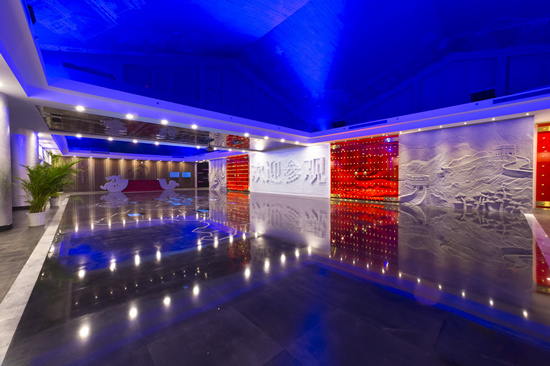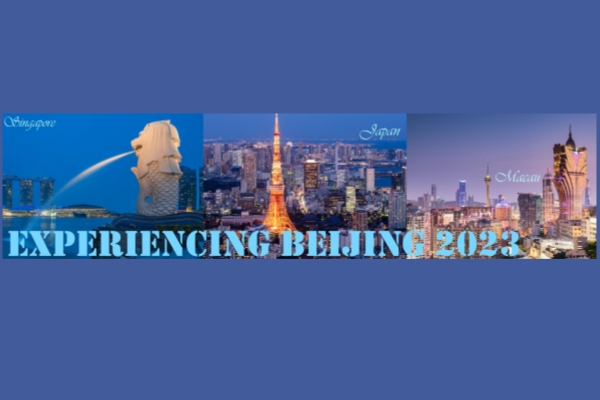Beijing bids to become more vibrant cultural hub

Beijing's Badaling Great Wall opens partially to visitors on a reservation basis on March 24. The capital city is constructing a national cultural park based on the Great Wall. [Photo by Wei Xiaohao/China Daily]
Beijing says it will preserve its traditional architecture, build more public cultural facilities, accelerate major cultural projects and develop a cultural industry with global competitiveness over the next 15 years, to enrich the spiritual life of local people and serve social and economic development.
The information about the medium and long-term plan of Beijing to construct a national cultural center between 2019 and 2035 was released at a news conference on Thursday.
It said old and iconic buildings, including hutong (alley), quadrangle courtyards, temples, former residences of celebrities and historical buildings, would be renovated and well-preserved, to balance the protection of tradition with the upgrading of urban areas.
The number of cultural facilities in Beijing is set to keep growing. In the future, there are plans to have a cinema every 2 kilometers and reading spaces not more than a 15-minute walk away. There are currently 149 theaters, 163 museums, 260 cinemas, about 1,300 bookstores and 5,800 public libraries in the city, said Zhao Weidong, deputy head of the publicity department of the Beijing Committee of the Communist Party of China, at the event.
The aim is to increase people's access to the cultural sector, he said. Major cultural projects under way include the application for Beijing's central axis-which originally ran from Yongdingmen Gate Tower to the Drum and Bell Towers-to be listed as a UNESCO World Heritage Site, construction of national cultural parks based on the Grand Canal and the Great Wall, cultural programs along the Yongding River, a Universal Studios theme park in the city's Tongzhou district and cultural heritage protection in the Nanhaizi area of southern Beijing.
The national cultural center will be guided by core socialist values and will be a research and communication center for Marxism. Revolutionary history and stories of the country will be emphasized, according to Zhao.
It will serve China's international cultural exchanges through its globally renowned cultural events, such as the Beijing International Book Fair, Beijing Design Week and the Beijing International Film Festival.
According to the plan, a demonstration zone for public cultural services and cultural industry development will also be developed. Liu Shaojian, director of Beijing's State-owned cultural assets administration center, said at the event that the number of cultural companies in the city grew 55 percent since 2013 to reach 147,000 in 2018, with over 1.21 million workers in the industry. The average annual growth rate of value-added services in the cultural industry was 13.3 percent between 2013 and 2018. Emerging sectors like video, livestreaming, animation and gaming have developed quickly.
To reduce impact of the COVID-19 pandemic on the cultural industry, Beijing has established a risk compensation fund and increased financial support for related companies, especially small and medium-sized ones, he said.
Liu added that the goal is to build a strong cultural industry with global competitiveness and influence, driven by high-quality original works, innovation, booming cultural consumption and a good business environment.
For more details about the 15-year plan, please visit: http://socaac.chinadaily.com.cn/2020-04/10/c_470526.htm

 Responsibilities of the SOCAAC
Responsibilities of the SOCAAC Experiencing Beijing 2023
Experiencing Beijing 2023